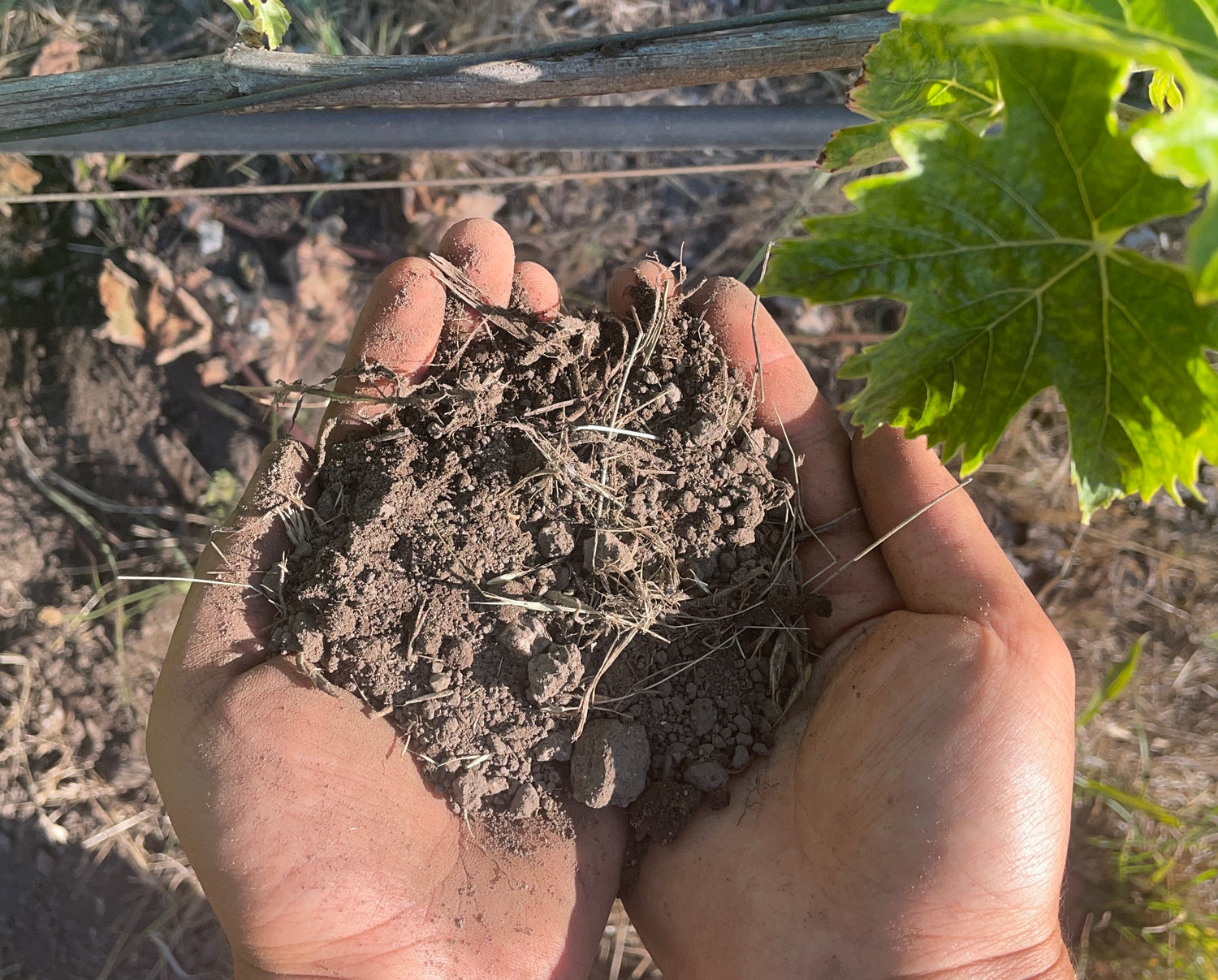The Environmental Quality Incentives Program and Natural Resources Conservation Service represent the cornerstone of federal soil conservation efforts, providing farmers with essential funding and technical expertise to implement sustainable soil health practices nationwide.
EQIP and NRCS Soil Health Programs: Complete 2025 Implementation Guide
EQIP provides up to 75% cost-share assistance for conservation practices while NRCS delivers science-based soil testing guidance through qualified individuals and accredited laboratories, supporting comprehensive soil health and nutrient management strategies for agricultural producers.
The Environmental Quality Incentives Program (EQIP) and the Natural Resources Conservation Service (NRCS) stand as key pillars in fostering soil health and nutrient management practices within agricultural landscapes. While EQIP offers financial and technical assistance to implement conservation practices, NRCS provides science-based soil information and technical guidance to land managers.
Understanding EQIP's Role in Soil Health Enhancement
Comprehensive Cost-Share Conservation Support
EQIP is NRCS's flagship conservation program that helps farmers, ranchers and forest landowners integrate conservation into working lands. The program provides financial and technical assistance to agricultural producers to address natural resource concerns and deliver environmental benefits such as improved water and air quality, conserved ground and surface water, increased soil health and reduced soil erosion.
Financial support often covers up to 75% of the project costs for implementing specified conservation practices, with historically underserved producers, including socially disadvantaged, beginning, limited resource and veteran farmers eligible for increased payment rates and advance payments of 50% to purchase materials and services.
Innovation Through Specialized Subprograms
EQIP offers diverse conservation initiatives targeting specific regional and resource needs. Conservation Innovation Grants provide competitive funding that stimulates the development and adoption of innovative approaches and technologies for conservation on agricultural lands. These programs focus on fostering the adoption of innovative conservation practices that prioritize minimal soil disturbance, soil cover maximization, biodiversity enhancement, and continuous root presence.
The program has expanded to encompass comprehensive soil nutrient testing and health planning, responding to evolving agricultural needs and climate challenges. Provisions under the 2018 Farm Bill further emphasize soil health initiatives within EQIP's framework.
Climate Resilience and Carbon Sequestration
EQIP emphasizes improved soil health, which mitigates against increasing weather volatility and improves drought resilience. Implementation of practices improves carbon sequestration and reduces greenhouse gas emissions while building resilient landscapes. The program provides financial assistance to address priority resource concerns, including sequestering carbon and improving soil health in high-priority areas.
NRCS Soil Testing and Management Framework
Science-Based Soil Information Systems
NRCS delivers science-based soil information to help farmers, ranchers, foresters, and other land managers effectively manage, conserve, and appraise their most valuable investment — the soil. The agency plays a pivotal role in providing comprehensive soil information and technical assistance to support effective soil management and conservation efforts.
Soil testing stands as a cornerstone of NRCS programs, aiding in assessing soil fertility levels and informing nutrient management decisions critical for sustainable agricultural practices. The Kellogg Soil Survey Laboratory measures soil properties that are critical to soil survey and conservation efforts, maintaining a publicly accessible database of historic soil analytical data from thousands of sites.
Qualified Individuals Program
NRCS recommends utilizing Qualified Individuals (QIs) for comprehensive soil and source testing, ensuring the development of robust nutrient testing strategies and accurate interpretation of soil nutrient needs. A qualified individual is a person with a background in agriculture that has completed virtual and hands-on training about soil carbon health sampling, verified through NRCS certification programs.
Qualified Individuals are trained to perform soil sampling for producers who participate in USDA-NRCS programs such as CEMA 221: Soil Stock Carbon Monitoring. The goal is to train qualified individuals in each state to be available to perform soil sampling for producers who would like to participate in NRCS conservation evaluation and monitoring activities.
Comprehensive Sampling Strategies
NRCS employs various sampling strategies, including Whole Field Composite, Zone, and Grid methods, to assess soil nutrient and liming requirements across different field areas. These methodologies ensure representative soil assessment for accurate nutrient management planning and conservation practice implementation.
The sampling process involves pre-work conferences where producers and NRCS conservation planners identify conservation practices, followed by qualified individual soil sampling before and after conservation practice implementation to measure soil health changes over time.
Laboratory Accreditation and Quality Assurance
Accredited Laboratory Standards
NRCS emphasizes the importance of using accredited laboratories to ensure the accuracy of soil test results, ensuring the reliability of data guiding nutrient management practices. The North American Proficiency Testing Performance Assessment Program (NAPT-PAP) is managed through the Soil Science Society of America and is often required by Natural Resource Conservation Service cost-share programs that include a nutrient management component.
Laboratory accreditation is based on specific testing methods, with labs required to demonstrate proficiency in analytical procedures and maintain rigorous quality control standards. This ensures that soil test analyses are performed using validated testing methods that meet federal program requirements.
Quality Control and Method Validation
Accredited laboratories must participate in proficiency testing programs that evaluate analytical accuracy and precision. The Performance Assessment Program is required by NRCS for soil analysis laboratories analyzing soils for federal conservation programs, ensuring consistent and reliable results across different testing facilities.
Labs must demonstrate competency in various soil testing methods including nutrient analysis, pH measurement, organic matter determination, and specialized tests for carbon monitoring and soil health assessment.
Application Process and Program Access
Eligibility and Application Requirements
Agricultural producers and owners of non-industrial private forestland are eligible to apply for EQIP. Eligible land includes cropland, rangeland, pastureland, non-industrial private forestland and other farm or ranch lands. Applications for NRCS conservation programs are accepted on a continuous basis; however, customers should apply by state-specific ranking dates to be considered for the current funding cycle.
To begin the application process, producers must contact their local USDA Service Center and work with NRCS staff to identify resource concerns, complete eligibility requirements including AD 1026 forms for highly erodible soils, and develop conservation plans that address specific environmental challenges.
Contract Development and Implementation
Once accepted into NRCS conservation programs, producers work with NRCS staff to complete contracts that outline how conservation practices will be implemented and when progress will be measured. Contracts can last up to 10 years, with payments made after conservation practices and activities identified in the EQIP plan of operations are implemented.
For soil carbon monitoring programs like CEMA 221, producers contract with Qualified Individuals who complete soil sampling before and after conservation practice implementation to measure soil health changes over time.
Program Benefits and Environmental Outcomes
Comprehensive Resource Protection
Through EQIP's financial assistance and NRCS's technical expertise, farmers and land managers gain access to valuable resources and support for promoting soil health and nutrient management. The programs address multiple resource concerns including soil quality and erosion, water quality, plant and animal health and biodiversity, wildlife habitat, air quality, and energy conservation.
Conservation practices supported through these programs deliver measurable environmental benefits such as improved water and air quality, conserved ground and surface water, increased soil health and reduced soil erosion and sedimentation, improved or created wildlife habitat, and mitigation against increasing weather volatility.
Long-term Sustainability and Innovation
By fostering innovation, providing guidance, and emphasizing the importance of science-based approaches, these programs play instrumental roles in enhancing environmental sustainability and resilience within agricultural systems. The integration of soil carbon monitoring, nutrient management planning, and conservation practice implementation creates comprehensive approaches to sustainable agriculture.
The programs support the development and adoption of cutting-edge conservation technologies and practices that address emerging challenges related to climate change, soil degradation, and resource scarcity while maintaining agricultural productivity and profitability.
Getting Started with EQIP and NRCS Programs
Initial Planning and Assessment
Producers interested in participating should contact their local NRCS office to discuss their vision for their land and identify environmental issues that may need addressing. NRCS provides landowners with free technical assistance and advice for their land, including resource assessment, practice design and resource monitoring.
The first step involves working with NRCS conservation planners to identify environmental issues ranging from soil health and nitrogen management to restoring disturbed lands, with different focus areas for growers, ranchers, and foresters.
Program Selection and Application
Based on identified resource concerns, producers can apply to relevant NRCS conservation programs including Environmental Quality Incentives Program (EQIP) or Conservation Stewardship Program (CSP). Applications should be submitted well before announced deadlines, as NRCS field offices may not be able to respond to late-arriving requests due to workload and local priorities.
Successful applicants receive site visits from NRCS representatives who assess proposed conservation practices and verify installation compliance with contract specifications.
Conclusion
Through EQIP's financial assistance and NRCS's technical expertise, farmers and land managers gain access to valuable resources and support for promoting soil health and nutrient management. By fostering innovation, providing guidance, and emphasizing the importance of science-based approaches, these programs play instrumental roles in enhancing environmental sustainability and resilience within agricultural systems.
The integration of qualified individual services, accredited laboratory testing, and comprehensive conservation planning creates a robust framework for addressing soil health challenges while supporting agricultural productivity and environmental stewardship goals.
Sources
- USDA Natural Resources Conservation Service. Environmental Quality Incentives Program. https://www.nrcs.usda.gov/programs-initiatives/eqip-environmental-quality-incentives
- USDA Natural Resources Conservation Service. Programs and Initiatives. https://www.nrcs.usda.gov/programs-initiatives
- Boise State University. CEMA 221 Qualified Individual Program. https://www.boisestate.edu/soilconservation/what-is-a-qualified-individual/
- North American Proficiency Testing. Performance Assessment Program. https://www.naptprogram.org/pap
- USDA Natural Resources Conservation Service. Kellogg Soil Survey Laboratory. https://www.nrcs.usda.gov/conservation-basics/natural-resource-concerns/soil/kellogg-soil-survey-laboratory-kssl
- Oregon State University Extension. Soil Testing Lab Selection and Methods. https://extension.oregonstate.edu/catalog/em-9423-soil-testing-lab-selection-recommended-analytical-methods-oregon
- USDA Natural Resources Conservation Service. Soil Science Division. https://www.nrcs.usda.gov/conservation-basics/natural-resource-concerns/soil/soil-science
- Carolina Farm Stewardship Association. Applying to EQIP. https://www.carolinafarmstewards.org/applying-to-the-environmental-quality-incentives-program/












